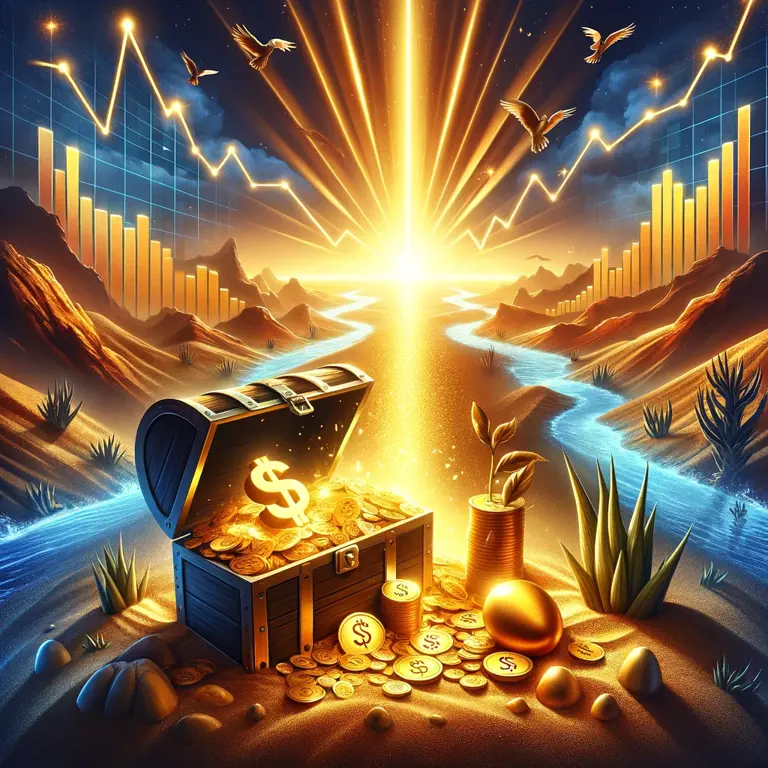In an unexpected turn of events for the U.S. economy, natural gas has emerged as an unlikely ally in the battle against escalating costs and financial uncertainty. While crude oil often dominates discussions on energy markets, natural gas has quietly assumed a pivotal role in various sectors, including heating homes, powering factories, generating electricity, and producing fertilizer.
Despite its importance, natural gas often remains overshadowed until its price fluctuations garner attention. After experiencing soaring prices in 2021 and 2022, which caused financial strain for consumers and manufacturers alike, the recent plunge in natural gas prices to a four-year low has brought relief. This significant price drop is particularly noticeable in American households that rely on natural gas for heating, with consumer bills declining by approximately 9% in February compared to the previous year.
The decline in natural gas prices marks a notable shift in the economic landscape, reflecting a nearly year-long trend of decreasing costs. This development not only alleviates financial pressure on consumers but also provides much-needed stability to various sectors reliant on natural gas as a key input.
Utility Bills Lead the Charge in Cost Savings
The recent sharp decline in gas prices is bringing tangible relief to the cost of living for many Americans. If you rely on gas for heating your home, you’ve likely noticed a significant reduction in your utility bills. Just a few months ago, energy costs were a major driver of inflation, accounting for a substantial portion of overall price increases. However, with gas prices plummeting, their impact on inflation has become negligible.
This shift goes beyond mere numbers on a bill; it’s a lifeline for countless individuals and families who have been struggling to make ends meet. For those who have been walking a financial tightrope, trying to balance their budgets, the drop in gas prices represents much-needed breathing room. It’s not just about comfort—it’s about providing a vital break in the ongoing battle against rising living expenses.
Moreover, the effects of lower gas prices are poised to extend beyond utility bills. They are expected to ripple through various sectors of the economy, offering a buffer against the challenges posed by other escalating costs. Industries, particularly manufacturing, stand to benefit from reduced energy expenses, potentially gaining a competitive edge in a market where cost efficiency is paramount.
A Ripple Effect Across the Economy
The current decline in natural gas prices is bringing about a significant shift in various industries, with manufacturers particularly benefitting as they unwind previously locked-in energy costs at higher rates. This move allows them to capitalize on the current low prices, potentially leading to reduced operational expenses and increased competitiveness. In sectors like agriculture, where natural gas is vital for fertilizer production, lower costs could translate into more affordable food production globally.
This price reversal stands in stark contrast to the situation just a couple of years ago when natural gas prices skyrocketed amid geopolitical tensions, contributing to an energy crisis. However, the subsequent surge in U.S. production, coupled with milder weather conditions reducing demand for heating, has helped stabilize prices.
The delicate balance between production and demand has played a crucial role in keeping prices in check, at least for the time being. Many experts anticipate that prices will remain low in the near future, offering a glimmer of hope for industries reliant on natural gas to alleviate their energy expenses amidst a challenging economic landscape.
The recent dynamics in natural gas prices serve as a reminder of the intricate interplay between global markets and local economies. As the U.S. economy strives for recovery, the significance of energy costs cannot be overlooked. From households benefiting from reduced heating bills to industries gaining cost advantages, the ripple effects of this unexpected turn of events are far-reaching and impactful.
